(lubavitch.com) When Guma Aguiar, a 32 year-old American billionare, gave 13 year-old Arpyom Rusanov of Kharkov, Ukraine, a gift of tefillin last week, he pointed to an ironic revision in the century-old storyline of Jewish history.
“You are so fortunate that you can begin wearing tefillin at the right time, on your 13th birthday,” Aguiar told the bar mitzvah boy of this former communist city, who had a bris just three days prior. By contrast, the energy magnate who grew up in the U.S. didn’t get to don tefillin until he was 26.
Aguiar is making up for lost time. Last week, the young businessman sprinted through blizzard conditions in Russia and Ukraine, tracing the early history of Chabad in Haditch, where its founder, Rabbi Schneur Zalman, (1745-1812) is buried, to Kharkov where he met Arpyom, now Moshe Aron, a product of the outreach of Chabad’s shluchim, Rabbi Moshe and Miriam Moscowitz.
In recent years, the philanthropist has become more involved and invested with Chabad, enjoying many opportunities to observe “the incredible concept of the shluchim and the unmatched passion for Jewish life that they learned from the Rebbe.”
What he saw was so inspiring, says Aguiar, who, though born a Jew, was raised as a Christian, that he simply “wanted to learn more about Chabad, its teachings and its origins. I wanted to connect at a deeper level.”
Rabbi Mendel Sharfstein of Lubavitch Headquarters worked with shluchim in Russia and Ukraine to plan a pilgrimage to the resting places of Chabad’s leaders that would allow Aguiar to see where it all began.
“We packed what would ordinarily be a week-long itinerary into barely three days, giving Guma the opportunity to visit Chabad’s holy sites and connect spiritually, farbrenging in Chasidic style with the Rebbe’s shluchim,” and to see their achievements since communism came to an end here, says Sharfstein.
Twenty years ago, when the Soviet empire was beginning to break down, the Rebbe sent representatives to three cities, each of historic interest to Chabad: Moscow, Dnepropetrovsk, and Rostov. Visiting these cities, Aguiar found lively Jewish communities, brimming with schools, shuls, mikvahs, and thriving social infrastructures.
Coaxed from the ground up by their respective Chabad shluchim, they are evidence of an astonishing revival. Projects as ambitious as the world’s largest Jewish museum ($70 million) rising in Moscow, and a $60 million JCC under construction in Dnepropetrovsk, make it difficult to imagine the former bleakness of the region.
In every city, as Aguiar was introduced to community leaders and Jewish students, he took the opportunity to fire their imaginations with the potential of their youth. His spectacular success in business, his personal spiritual transformation, and his drive to effect change cut an interesting and inspiring role model for them.
In response to the entrepreneur’s deep interest in the life and history of Chabad’s leaders, Rabbi Chaim Danzinger of Rostov guided Aguiar and the others to the mikvah originally built by Rabbi Sholom DovBer, Chabad’s fifth Rebbe, (1860-1920) in the early years of the 20th century. In addition, the group visited his former living quarters—now a Chabad yeshiva—and his resting place. For the Aguiar, as much as for his own local community members, says Danzinger, “it was moving and deeply inspiring.”
American businessman Steven Salsberg, a long-time champion of Chabad causes who participated in the trip concurs. The three-day visit, he says, was significant and rewarding on many counts.
“Wherever we went, we talked to philanthropists about recognizing the global trend in philanthropy to make subject-matter and value-based decisions, and to work in the aggregate to accomplish specific goals—in our case Chabad’s goals and the Rebbe’s vision for Jewish life,” says Salsberg, who is known for his own work with Corporate Social Responsibility.
The idea resonated well with community leaders. One philanthropist, already a strong supporter of local Chabad activities in Russia, promised to follow Aguiar’s lead and get involved “to join him and other leaders to support Chabad and the Rebbe’s mission anywhere in the world.”
Aguiar generated a similar response with the young as well. Chief Rabbi of Dnepropetrovsk, Rabbi Shmuel Kaminetzki arranged for him to meet a wide range of people. “Whether they were teenagers, college students, businesspeople or community leaders,” observed Rabbi Mendel Sharfstein, “he developed an instant rapport, impressing them with his focus, his energy and passion for Judaism.”
Russia’s Chief Rabbi Berel Lazar pointed out that “Guma’s story reflects the story of Russian Jewry.” Speaking to a group of young students in Dnepropetrovsk, he said:“Here’s a Jew who at 26 discovers he’s Jewish and becomes so passionate about his tradition, he wants to share it with others.”
Indeed, Aguiar describes a transfomation that began for him the moment he stepped into a Ft. Lauderdale Chabad shul on a Friday night less than ten years ago. He was greeted by Rabbi Moshe Meyer Lipszyc who seemed instantly to connect to his soul, and inspired him on a spiritual journey of Jewish recovery.
“Guma is genuinely excited about Chabad, about the vision of the Rebbe and the mission of the shluchim,” says Rabbi Lipszyc. “It was wonderful to see how he himself inspired Jewish youth to emulate his enthusiasm.”
And now, observes Lipszyc, Aguiar is taking his relationship with Chabad to the next level.
“I am especially interested in studying the Tanya,”says Guma, referring to Chabad’s foundational text. “I want to learn as much as I can from the teachings of its author, Reb Schneur Zalman of Liadi.”
Speaking to Jewish community leaders while the group took some time to farbreng in Haditch before entering Reb Schneur Zalman’s resting place, Rabbi Lazar offered Chabad’s creative interpretation of the Mishna that says: “Who is a wise one? He who anticipates the future.”
“It’s not that the wise person predicts the future, but rather,” emphasized Lazar, “that he shapes the future.”
That was the Rebbe’s empowering message. “The Rebbe taught us that Chabad Chasidic teachings give us the tools to impact the future, to change our society and to transform a negative reality into a positive one.”
Much like what has Chabad has done in the FSU, you might say. Aguiar would agree.
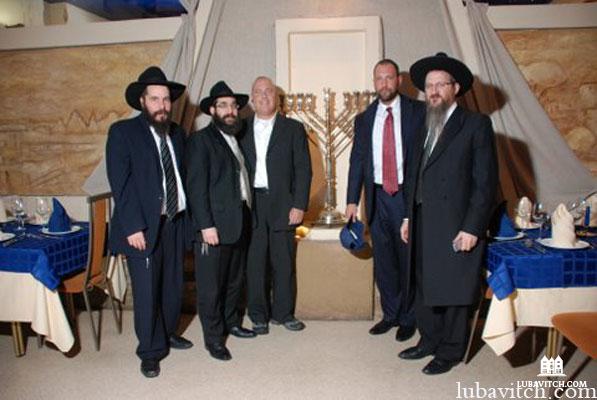
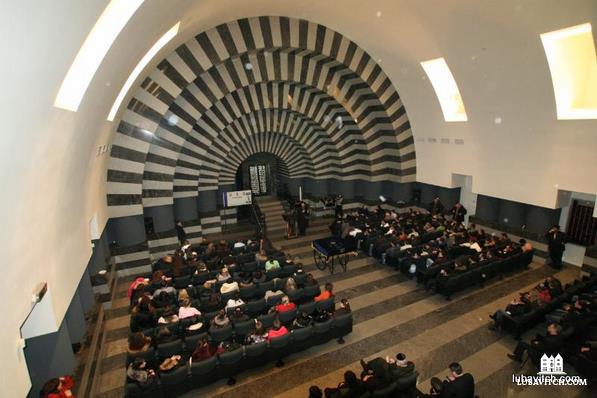
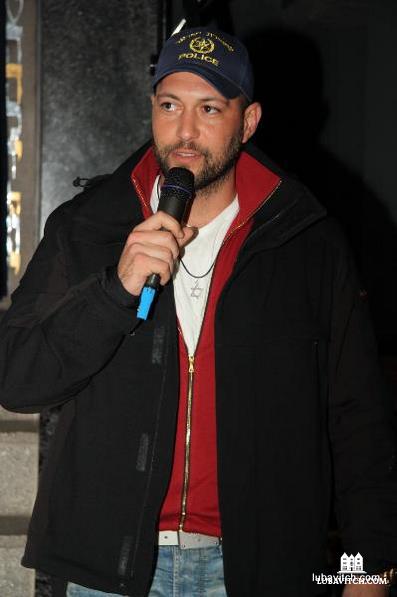
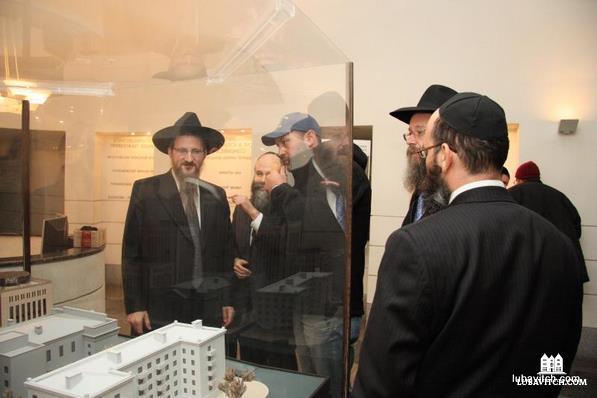
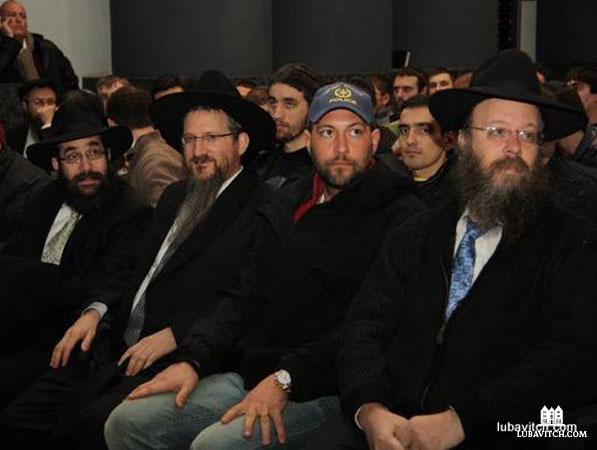
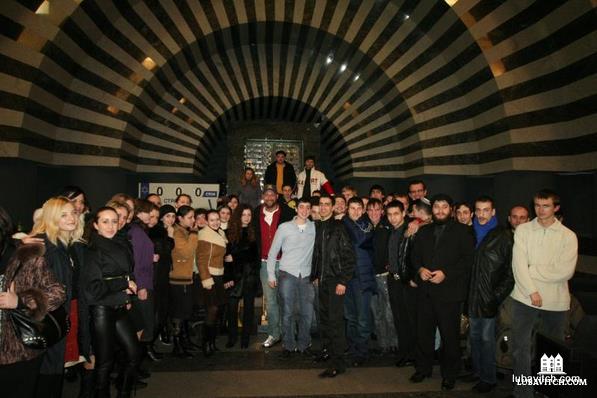
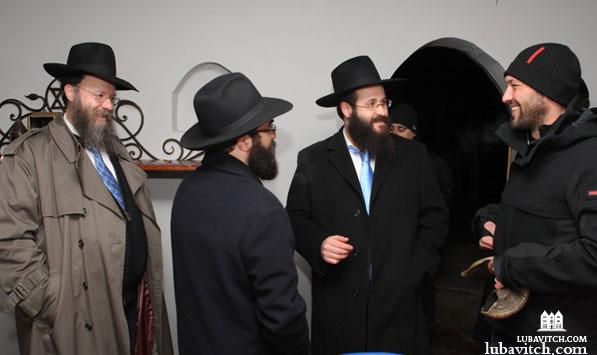
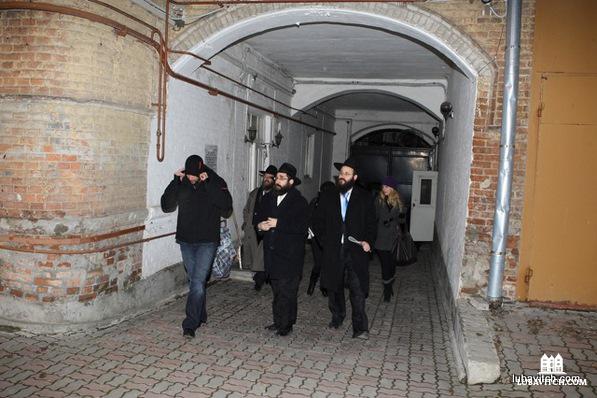
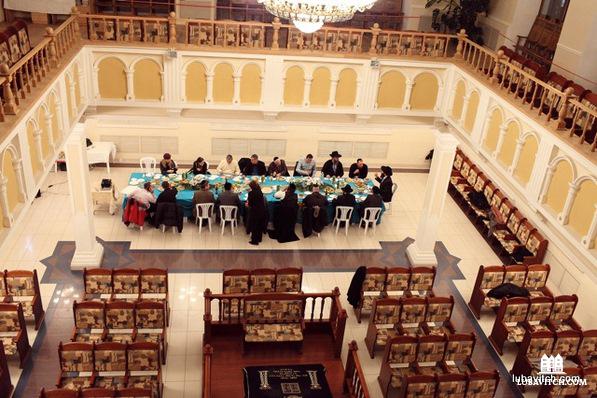
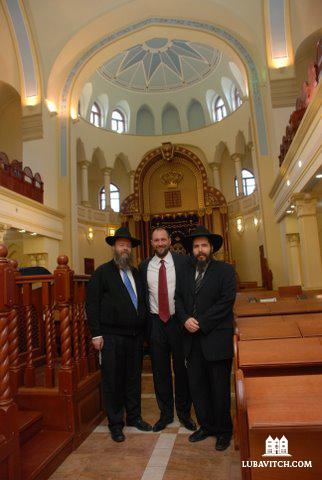
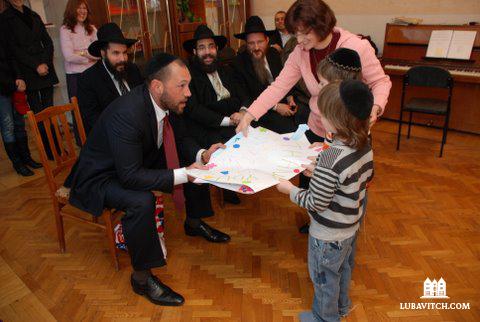
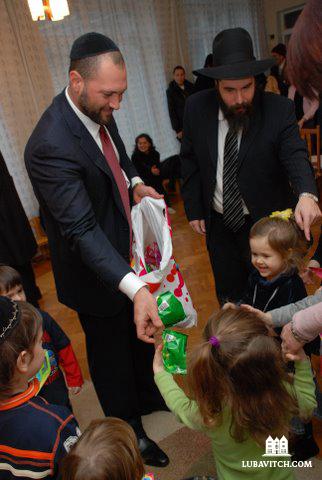
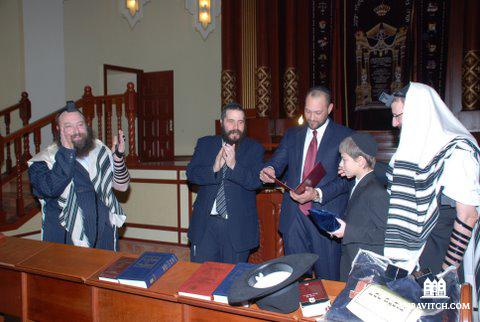
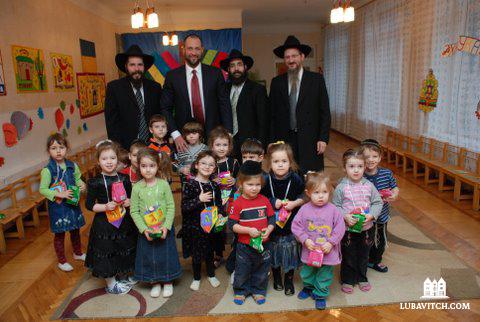
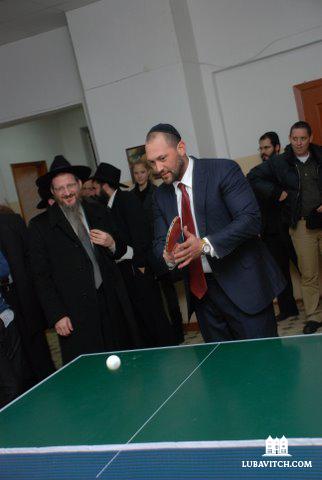
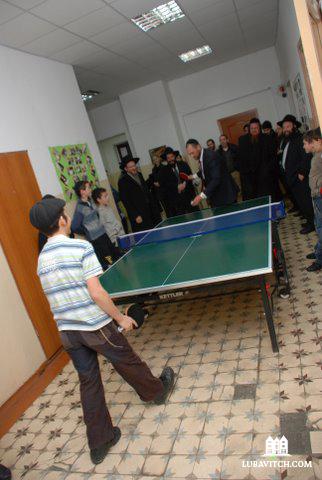
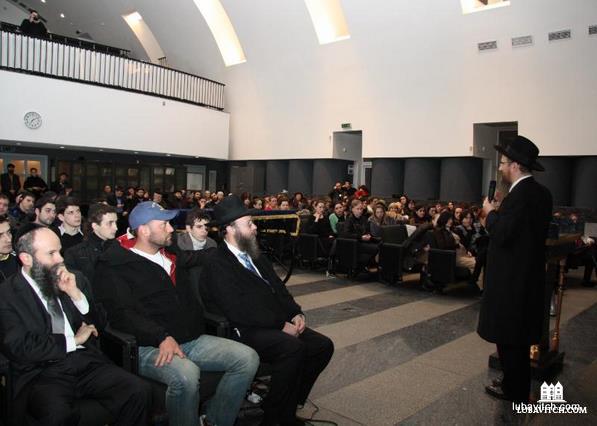
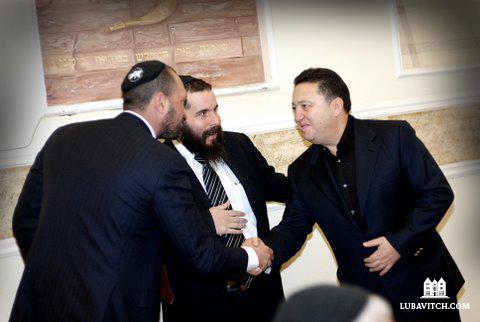
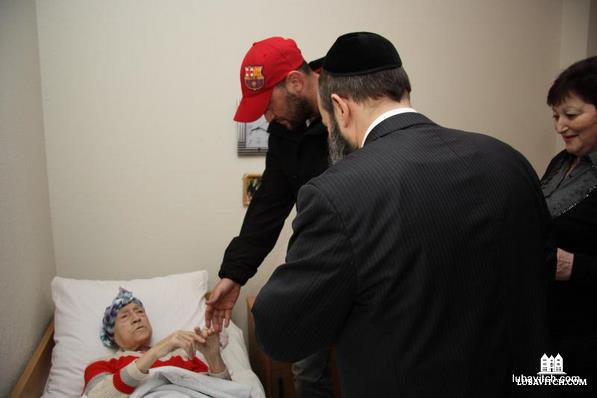
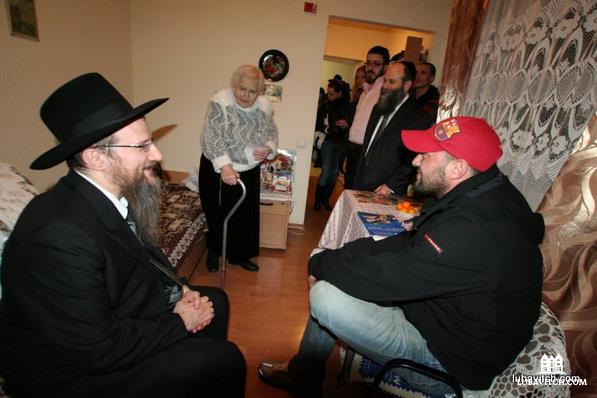
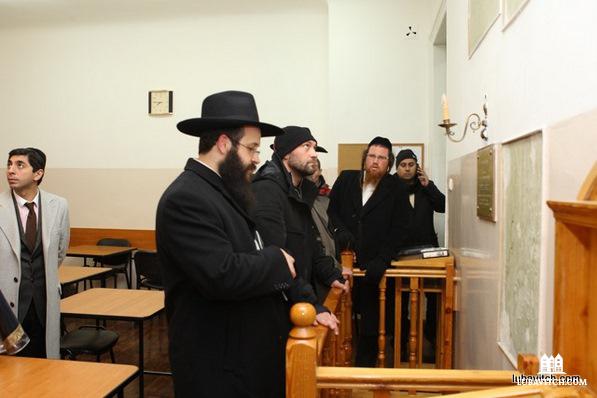


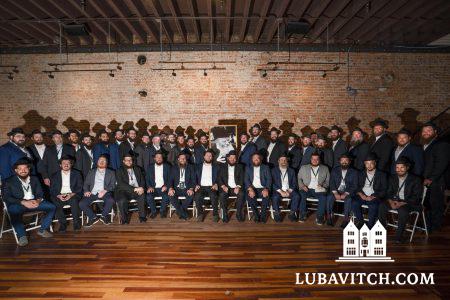


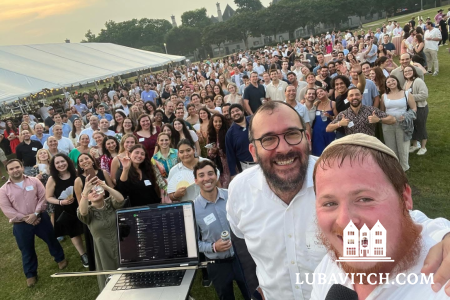
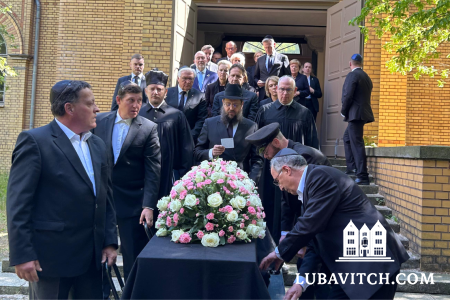
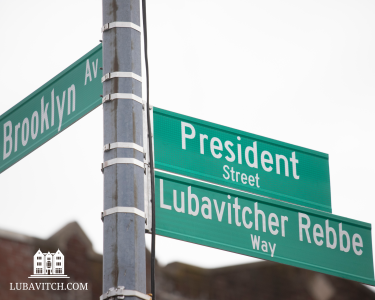

Be the first to write a comment.